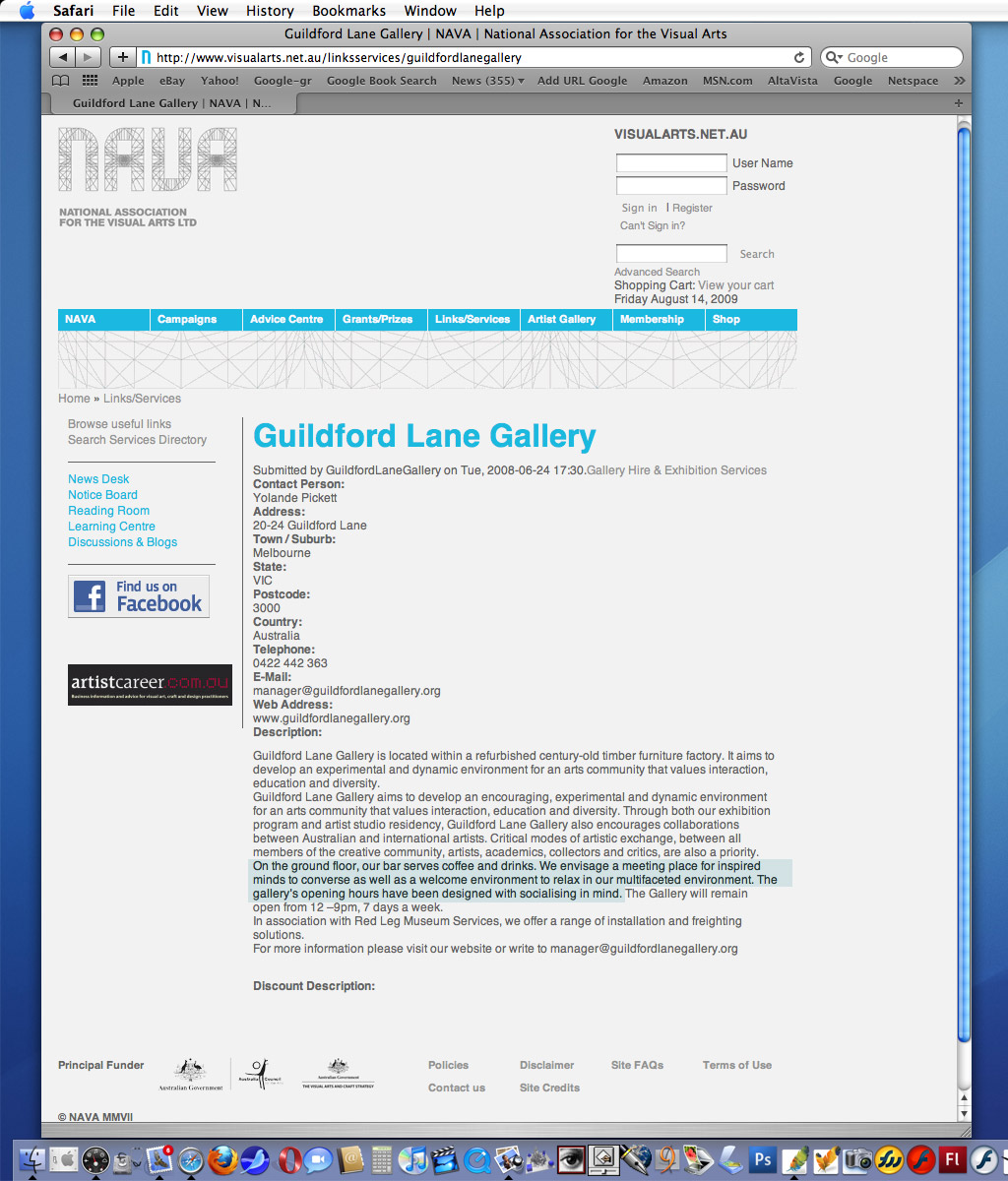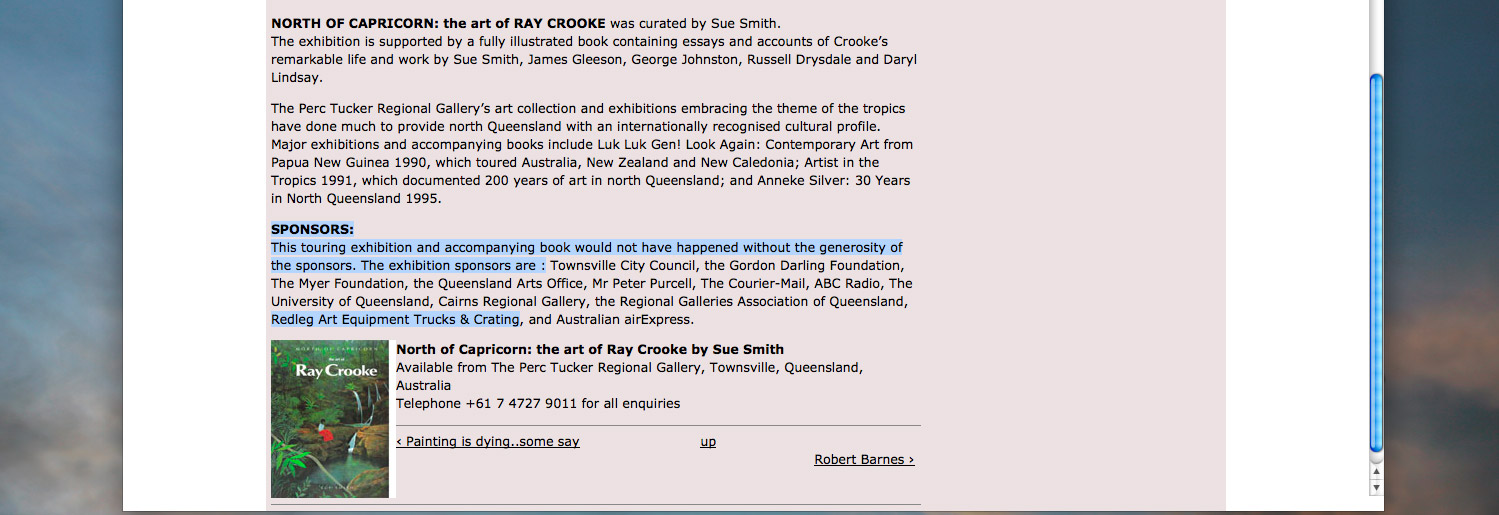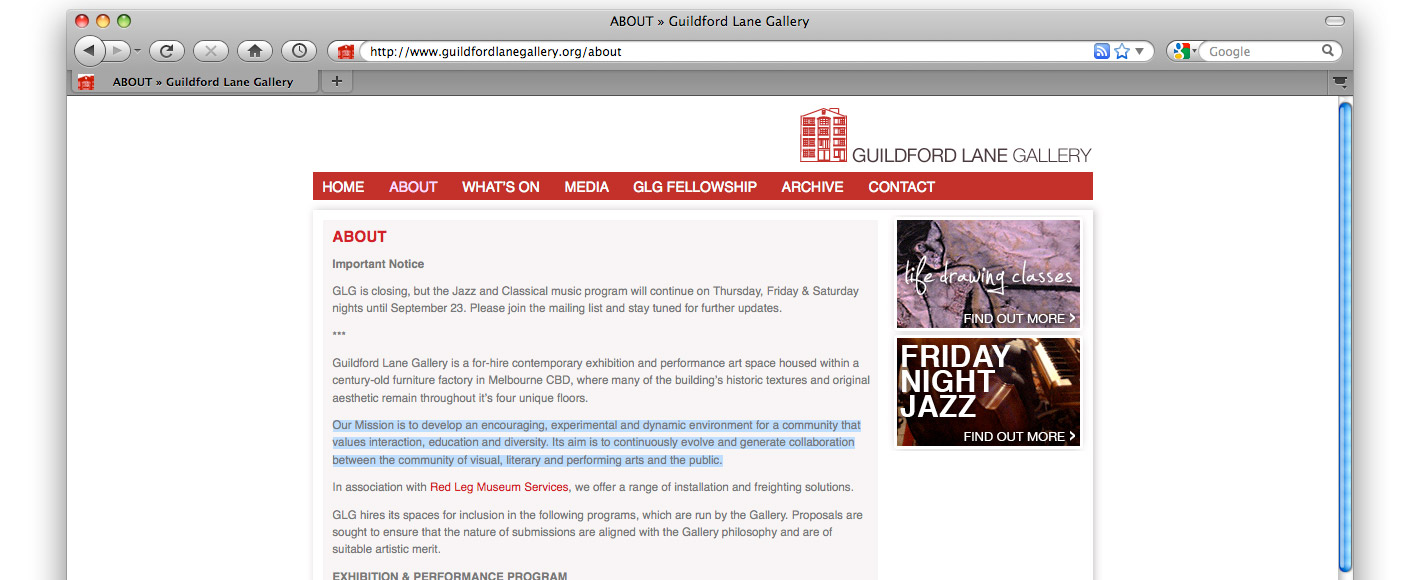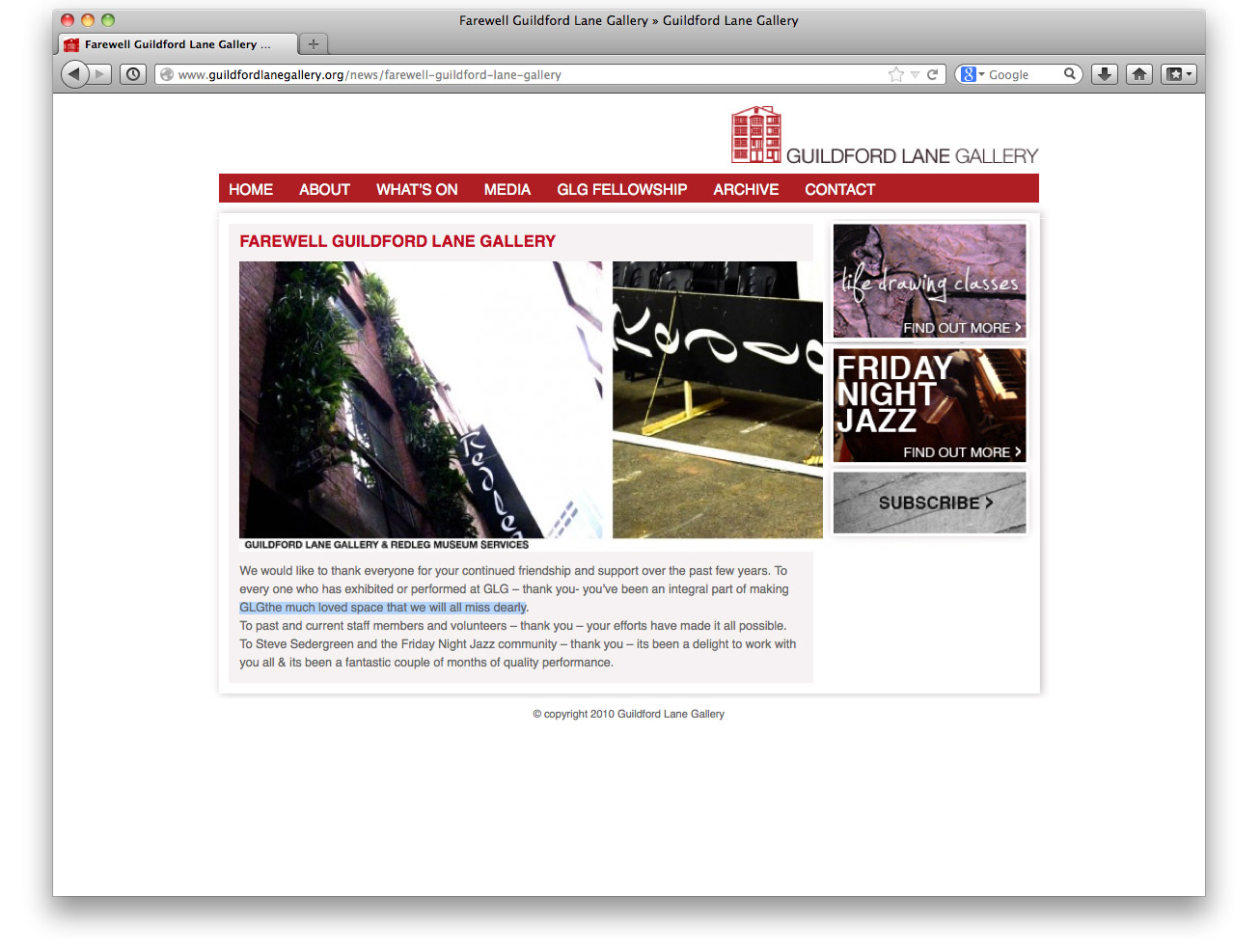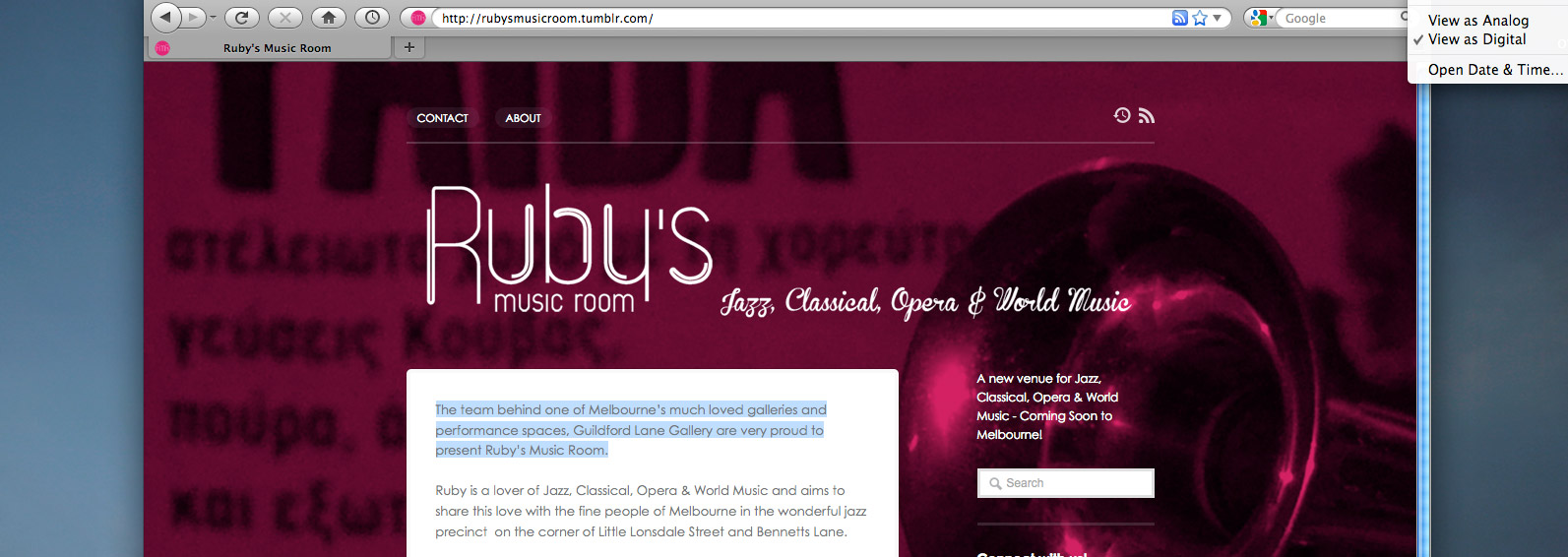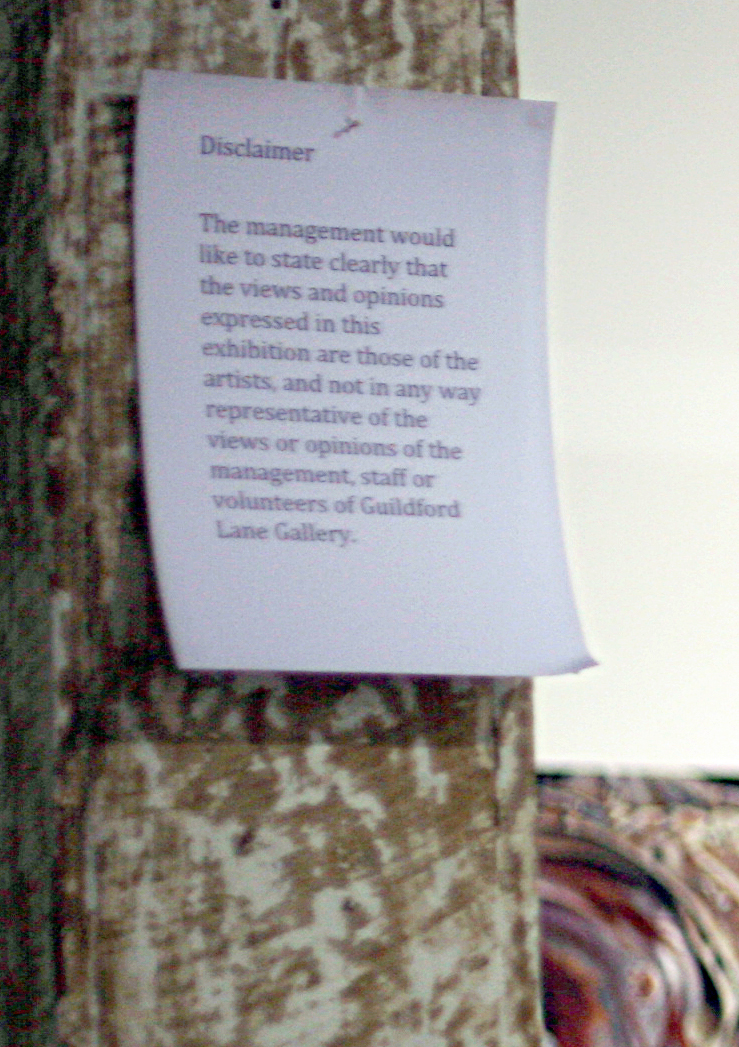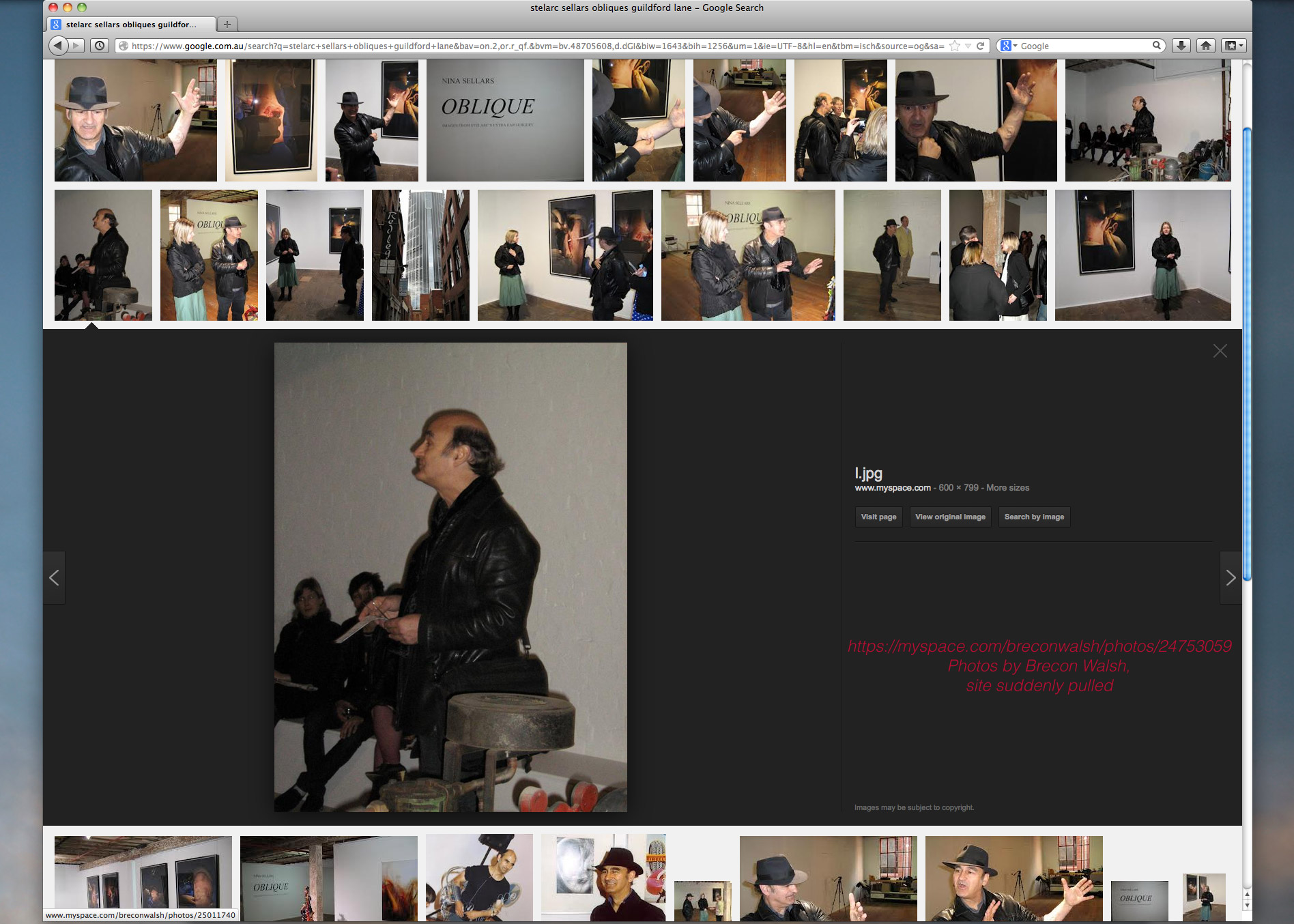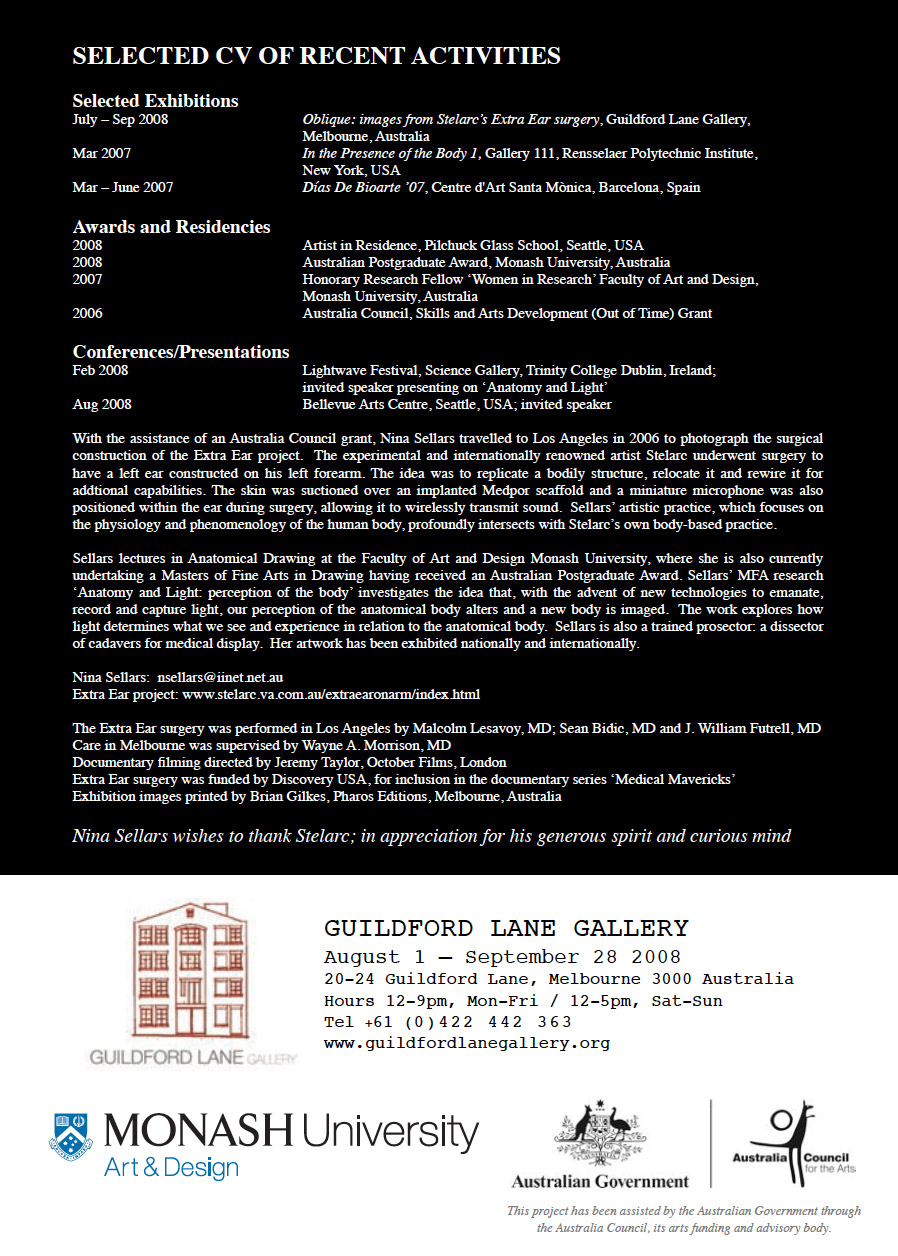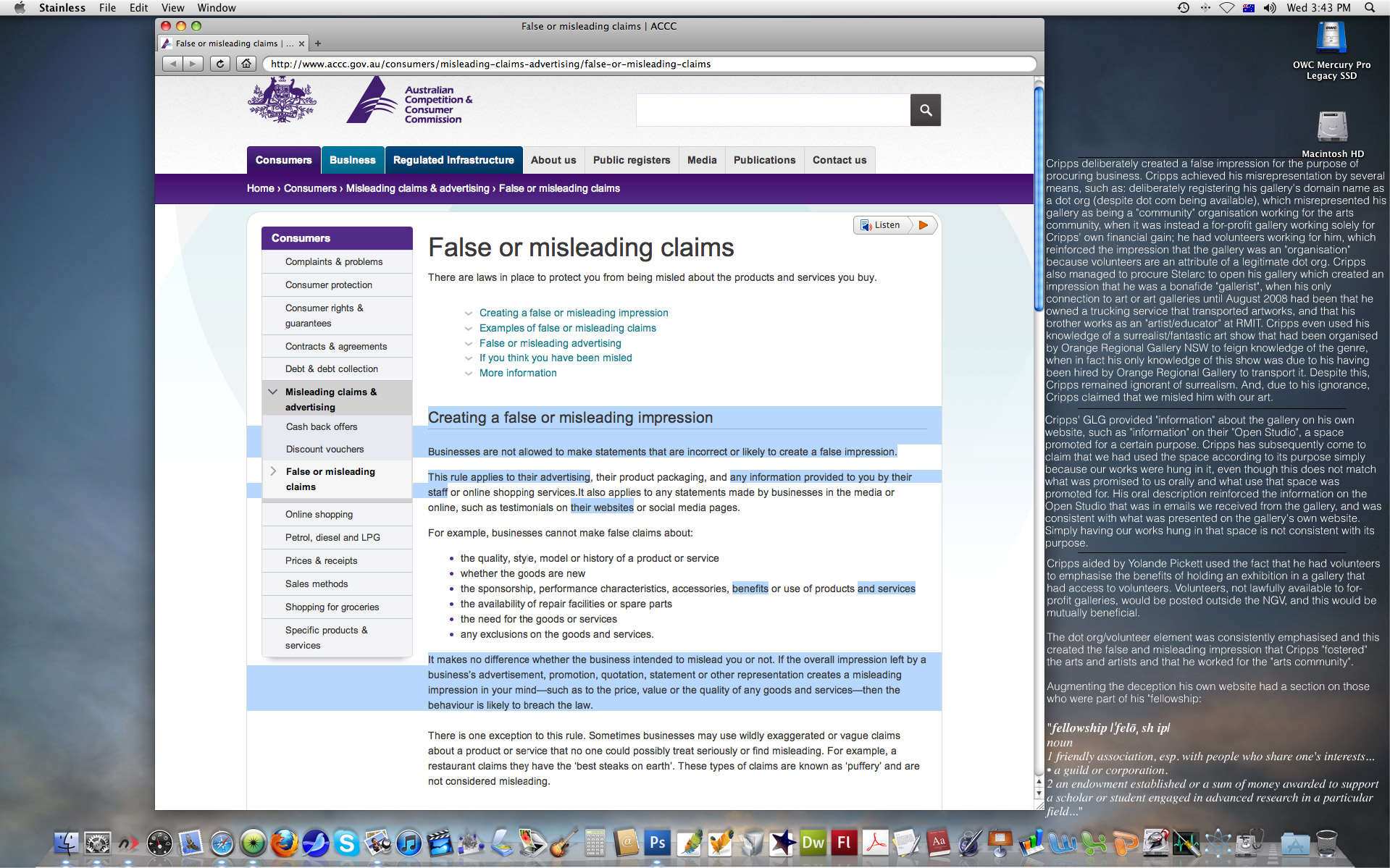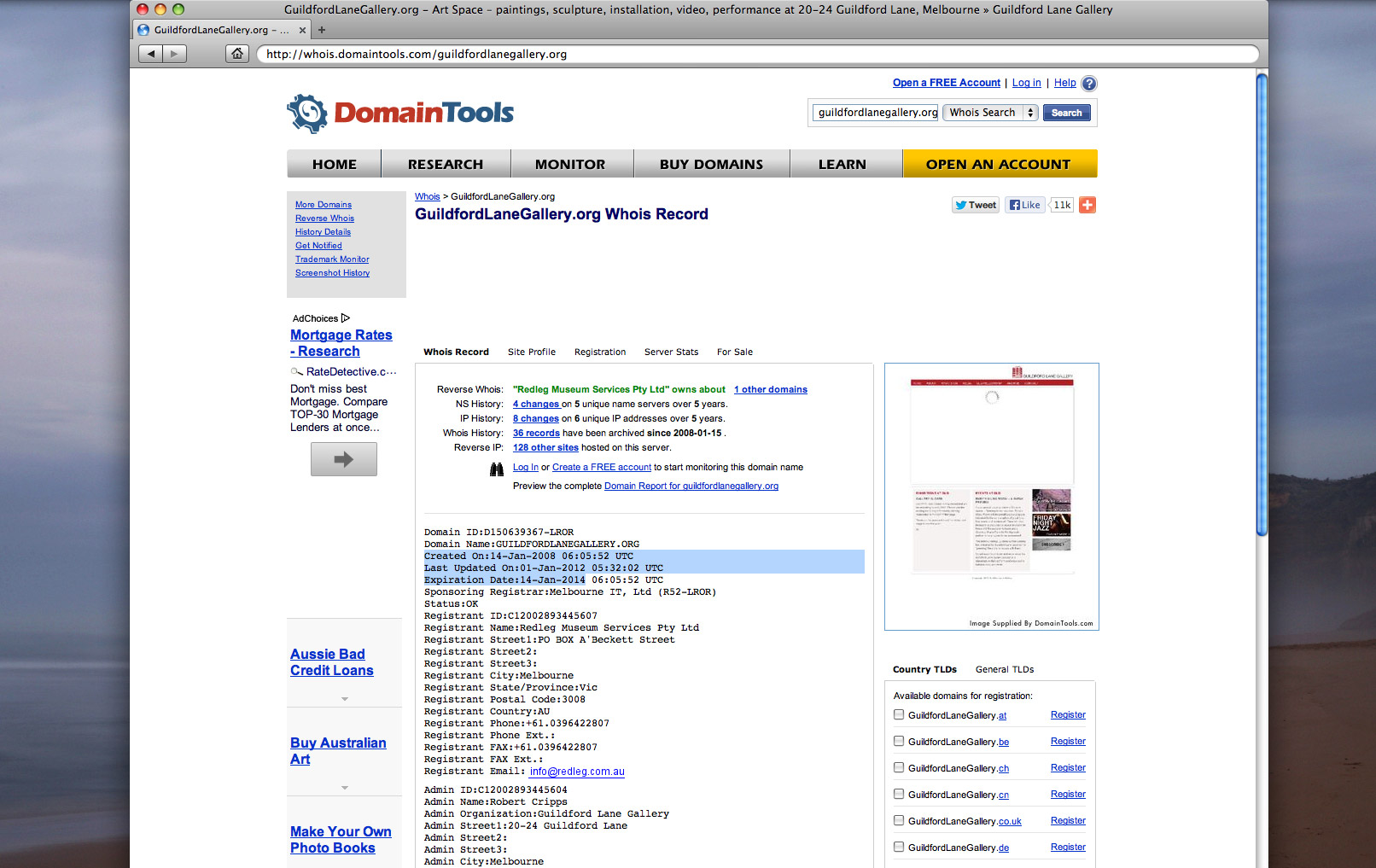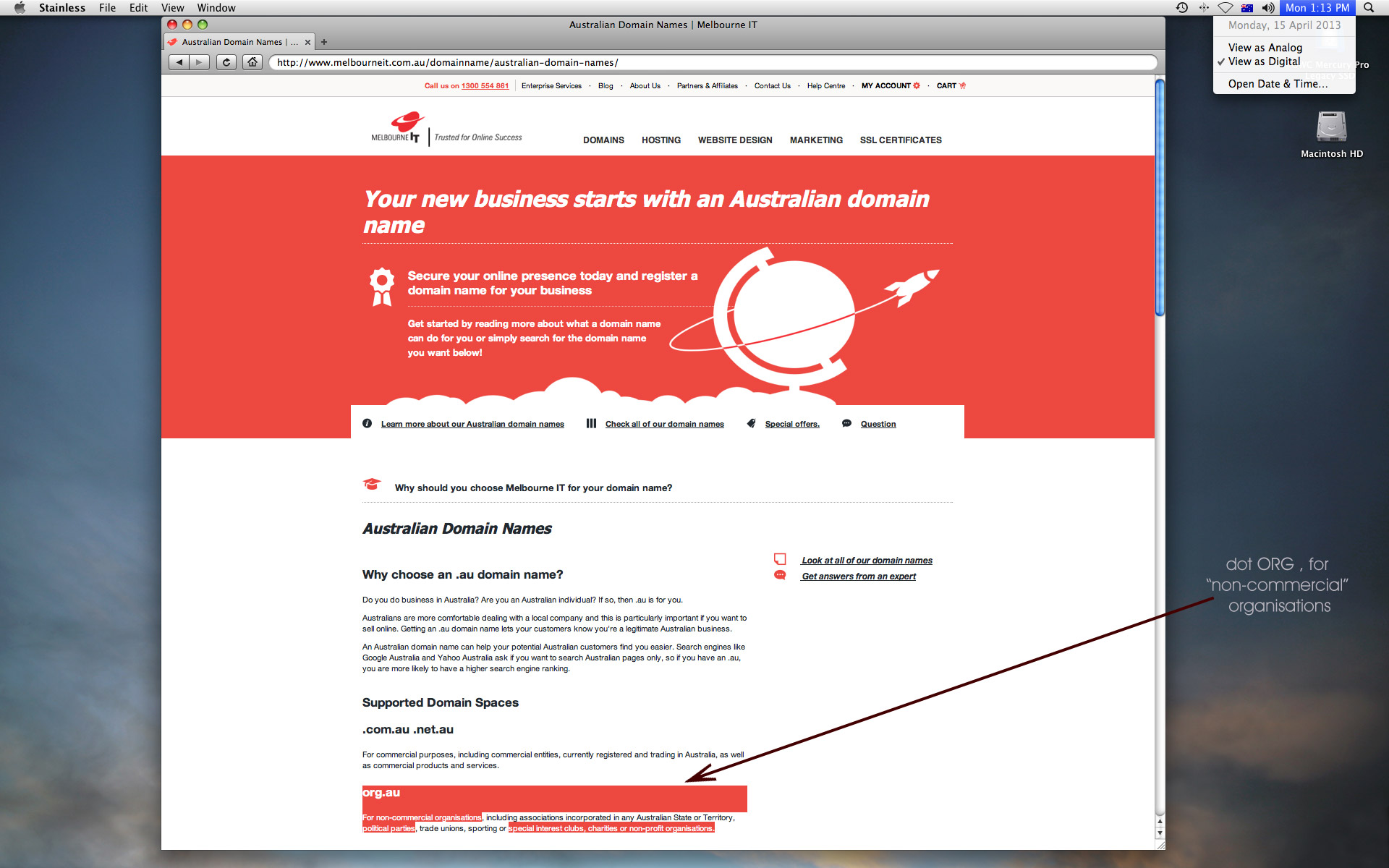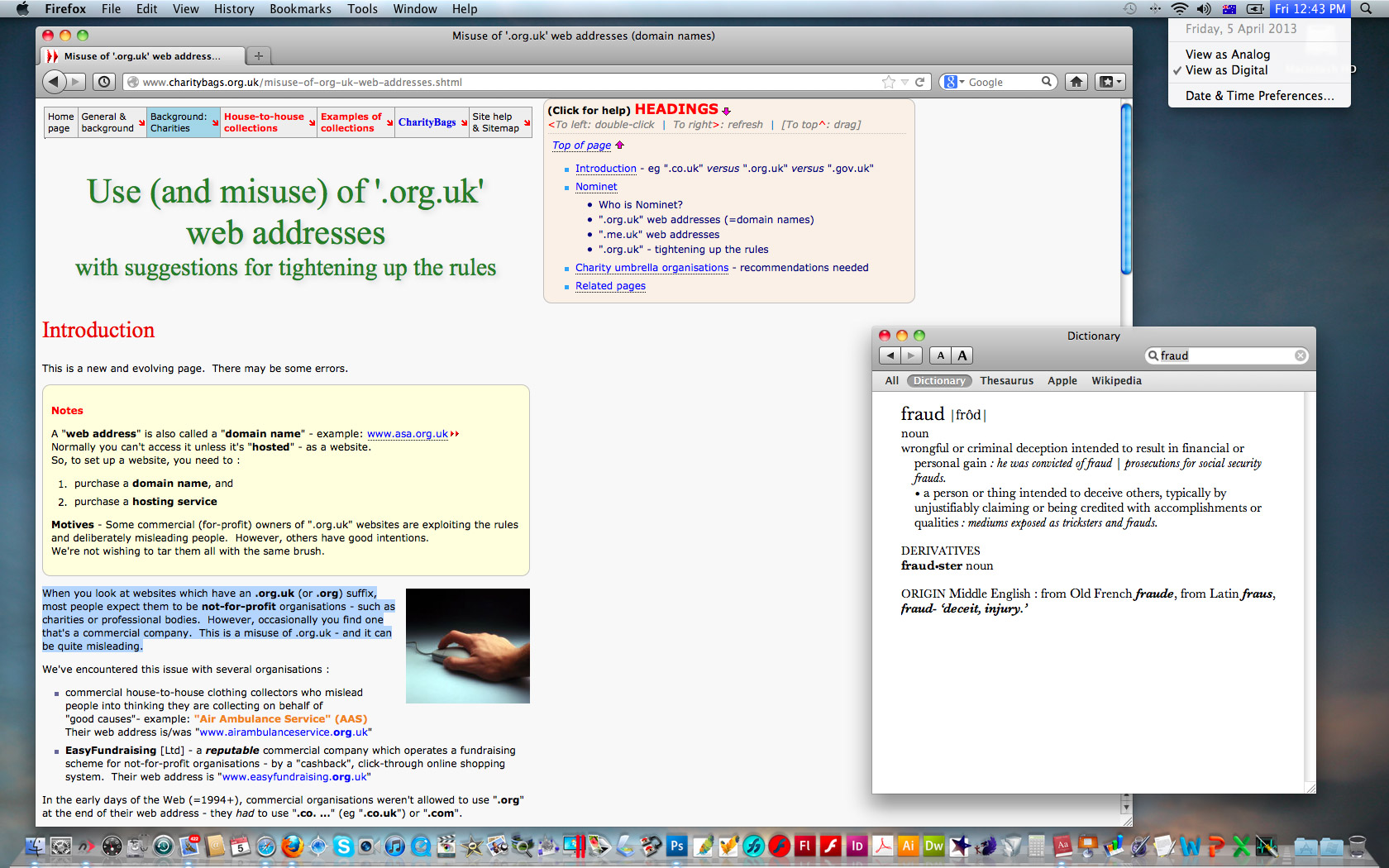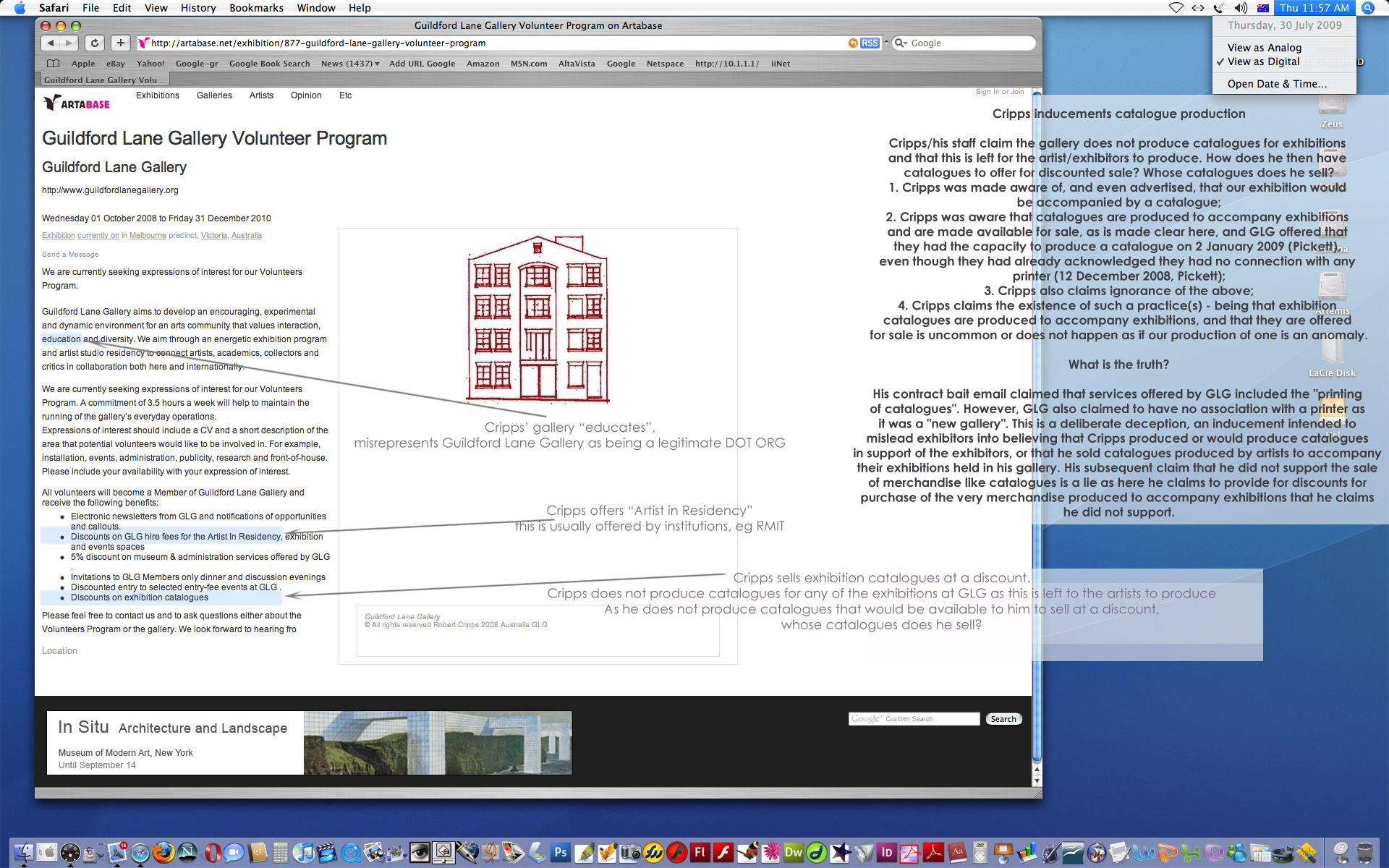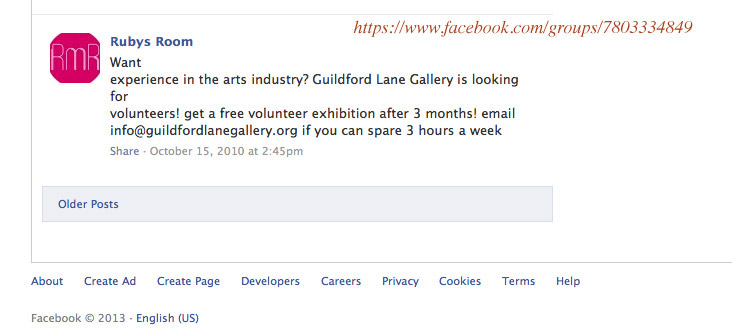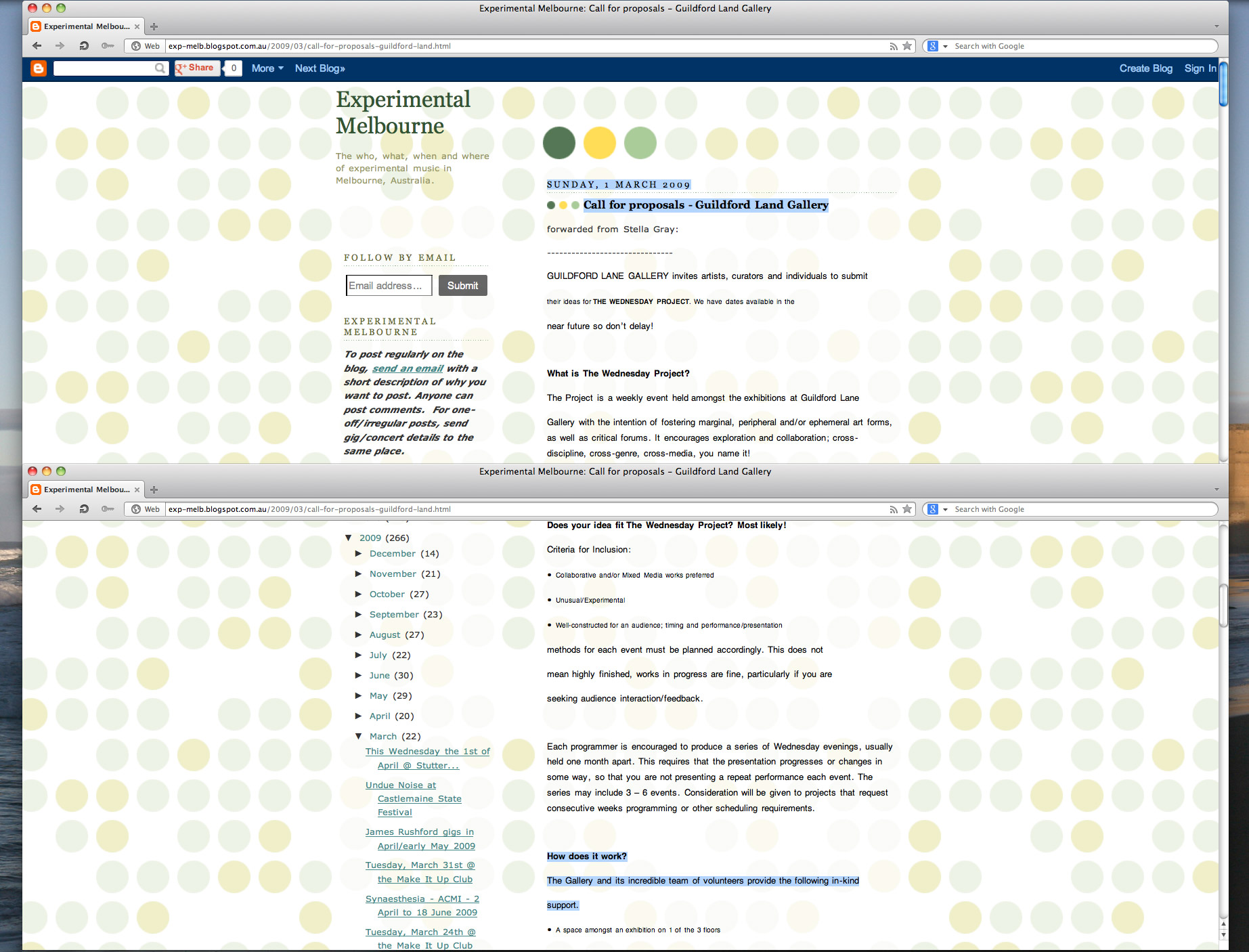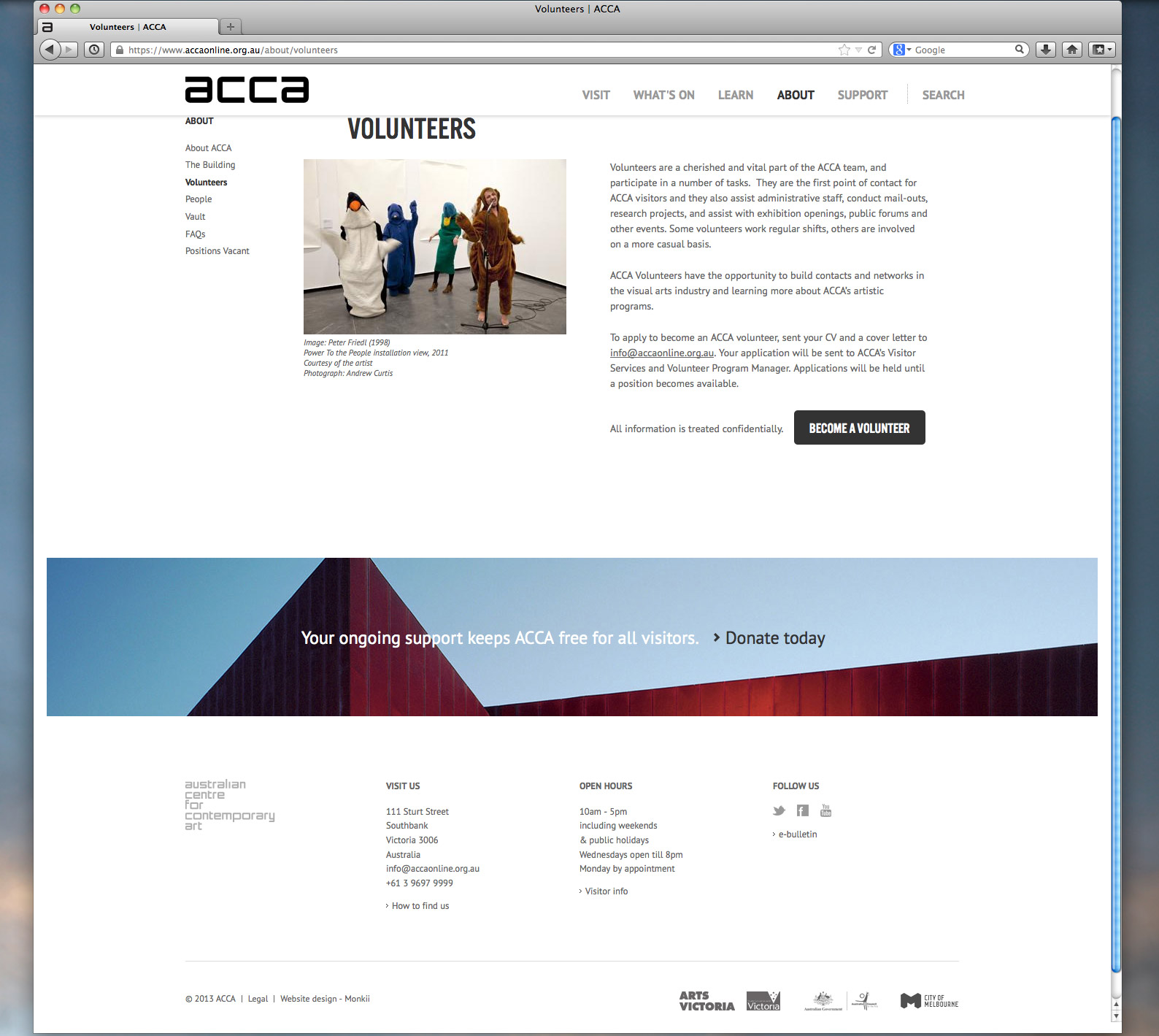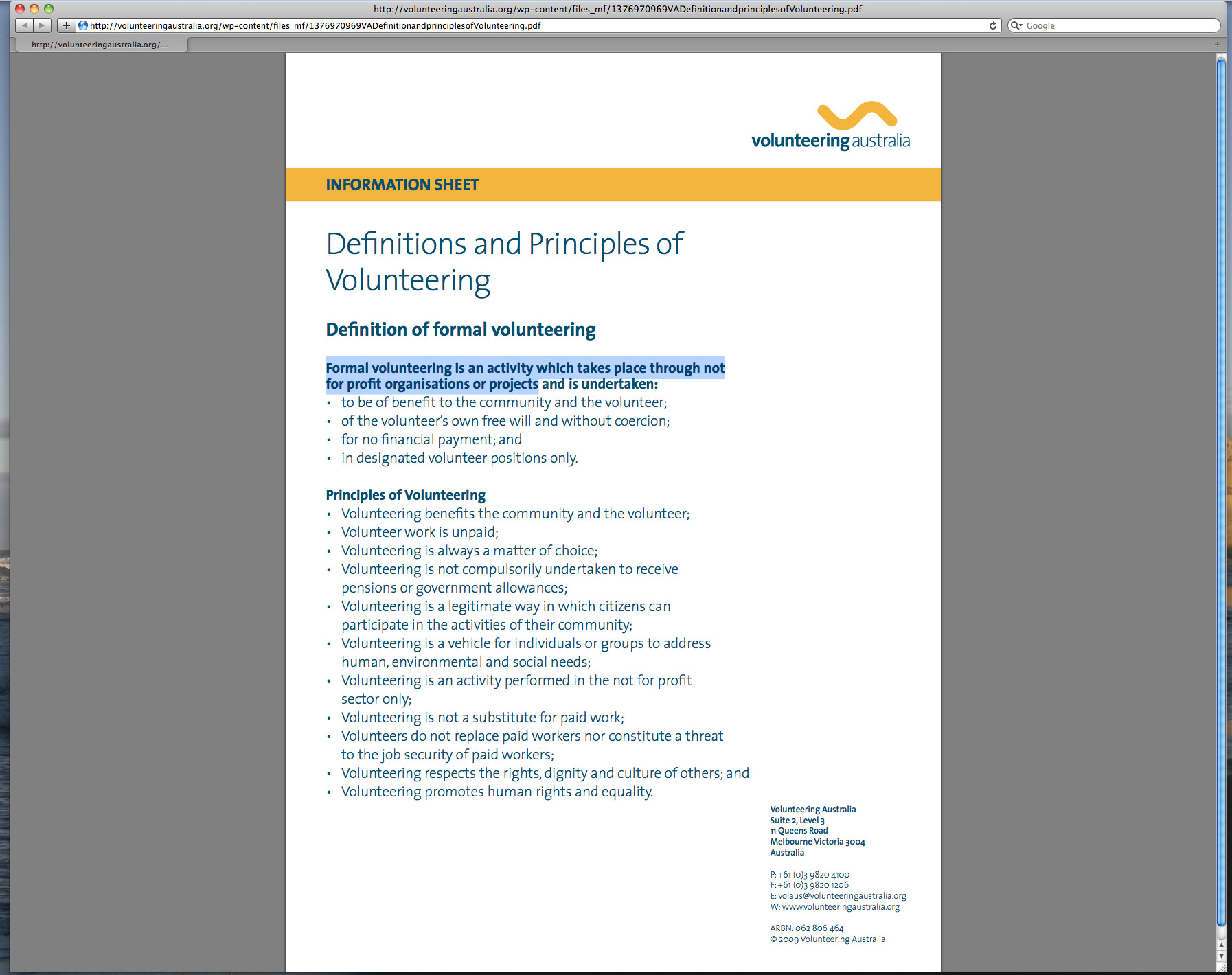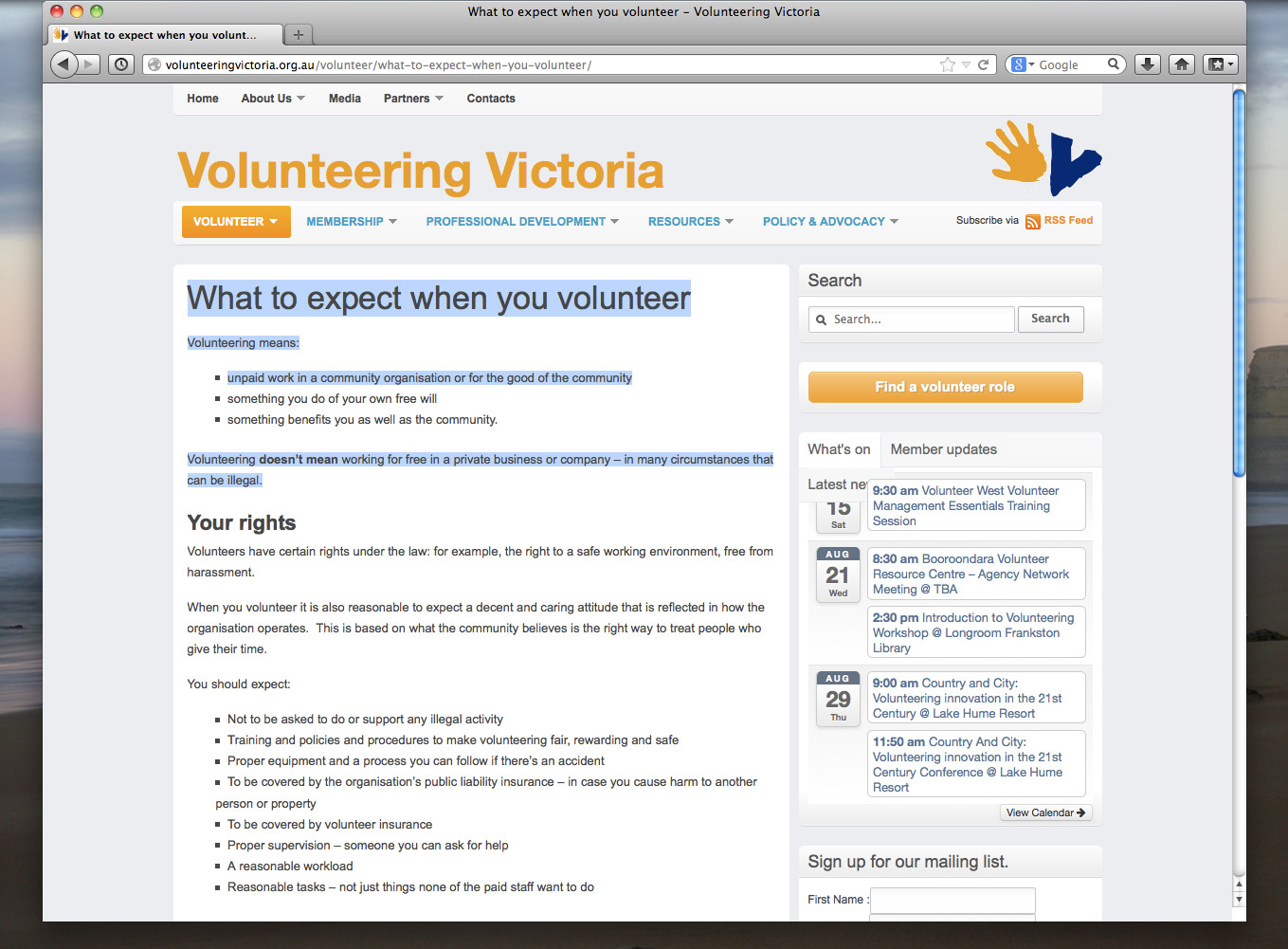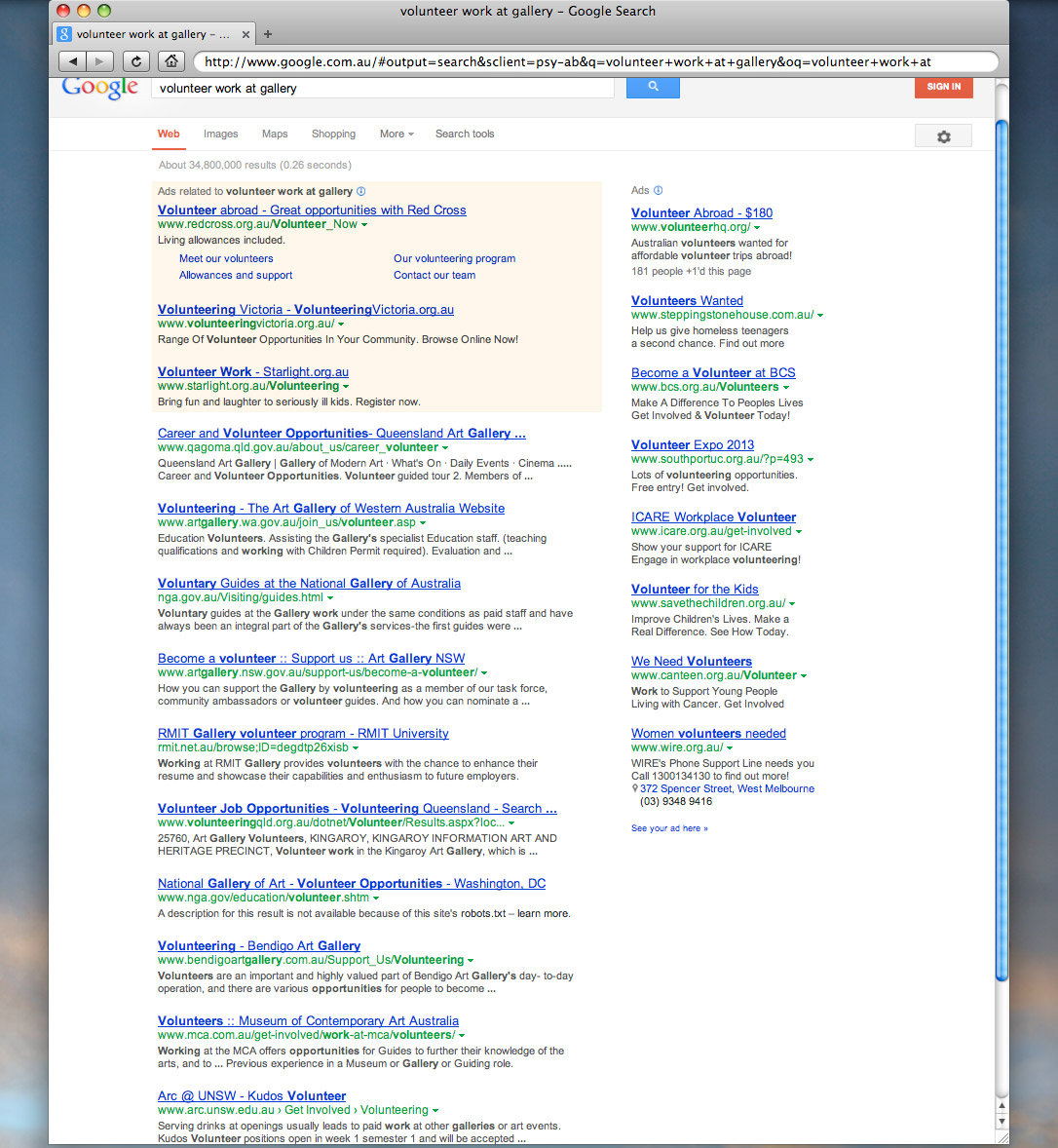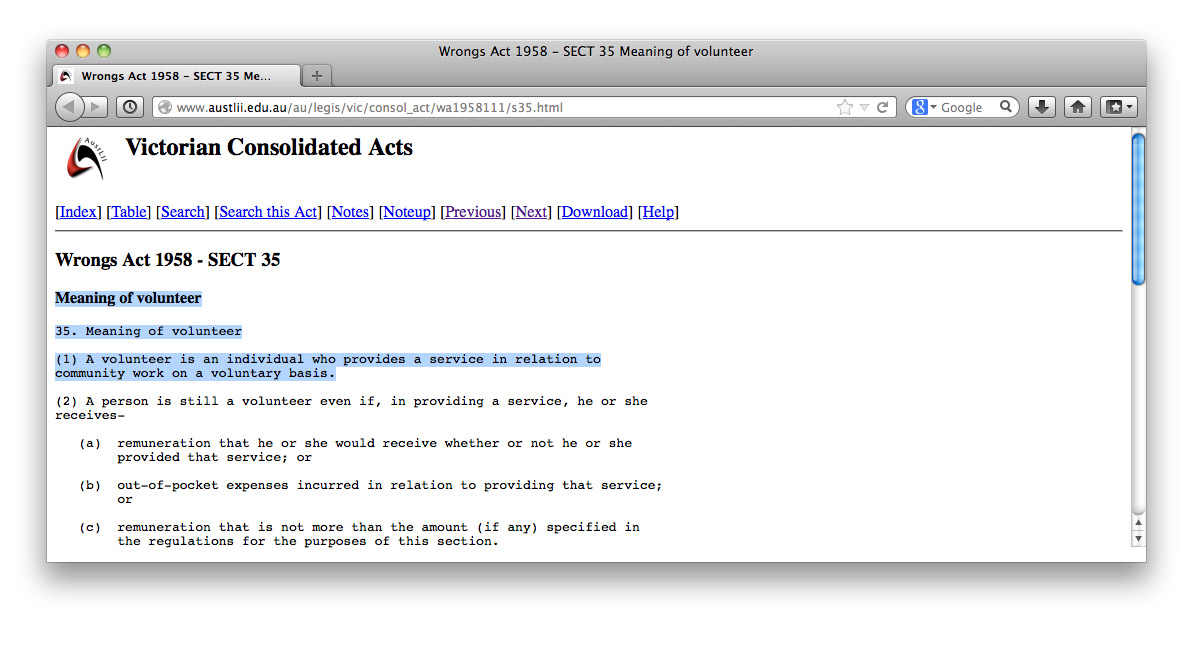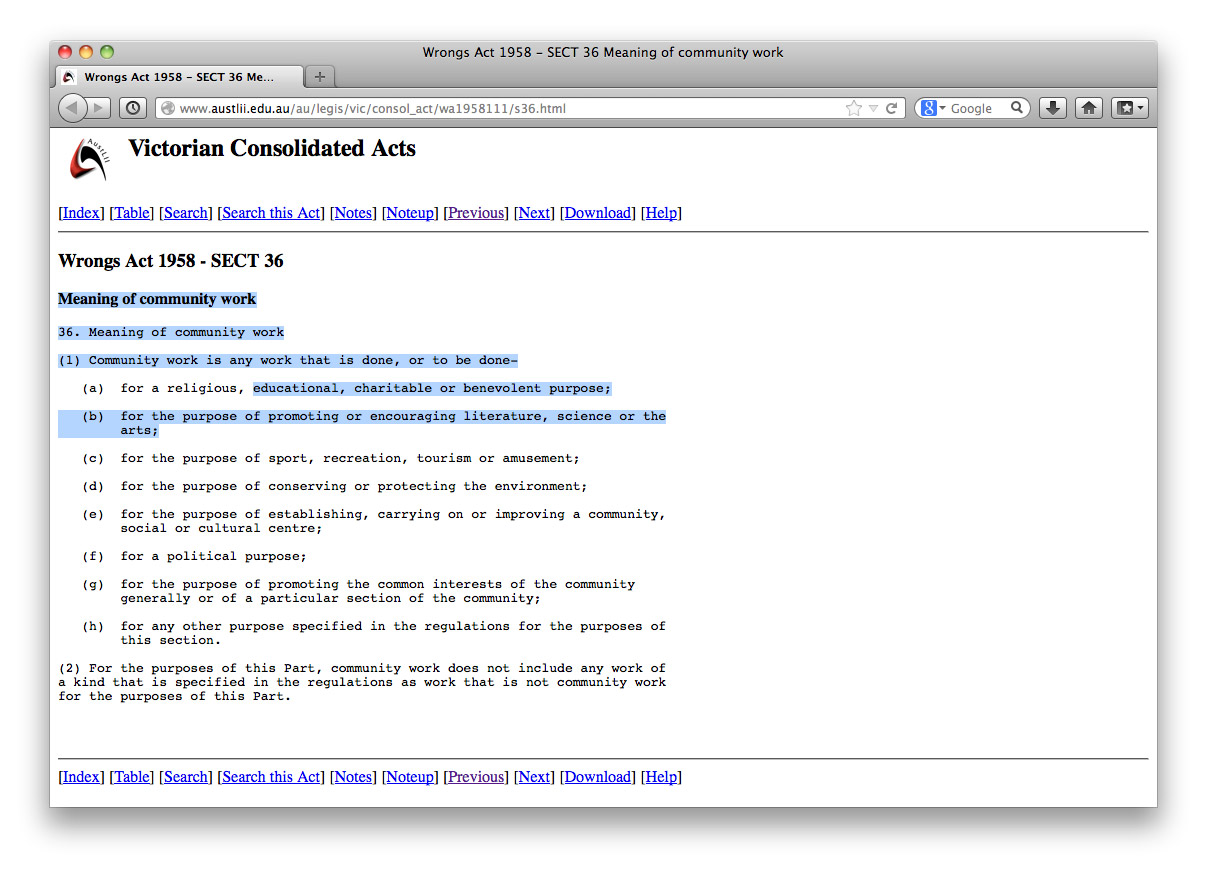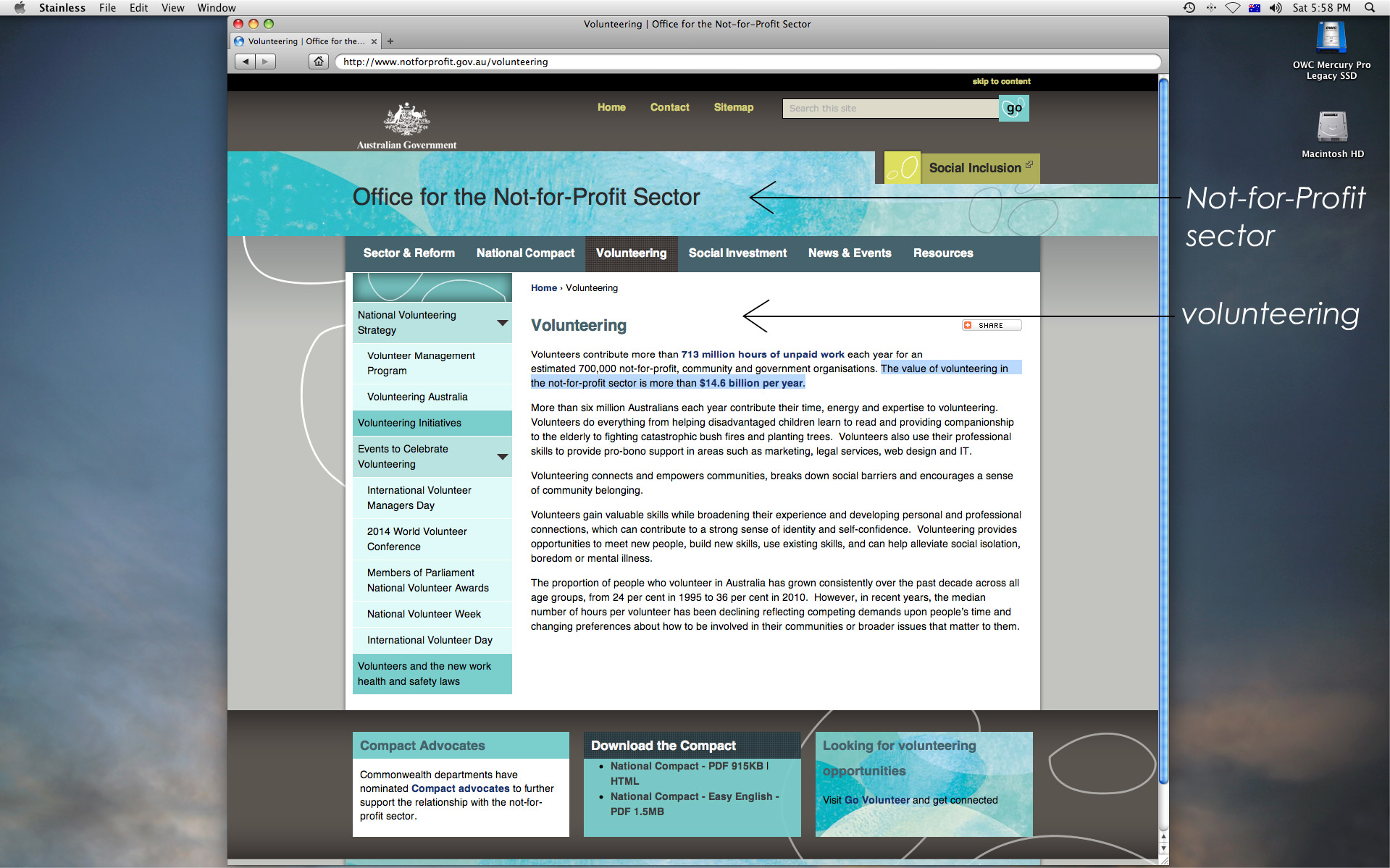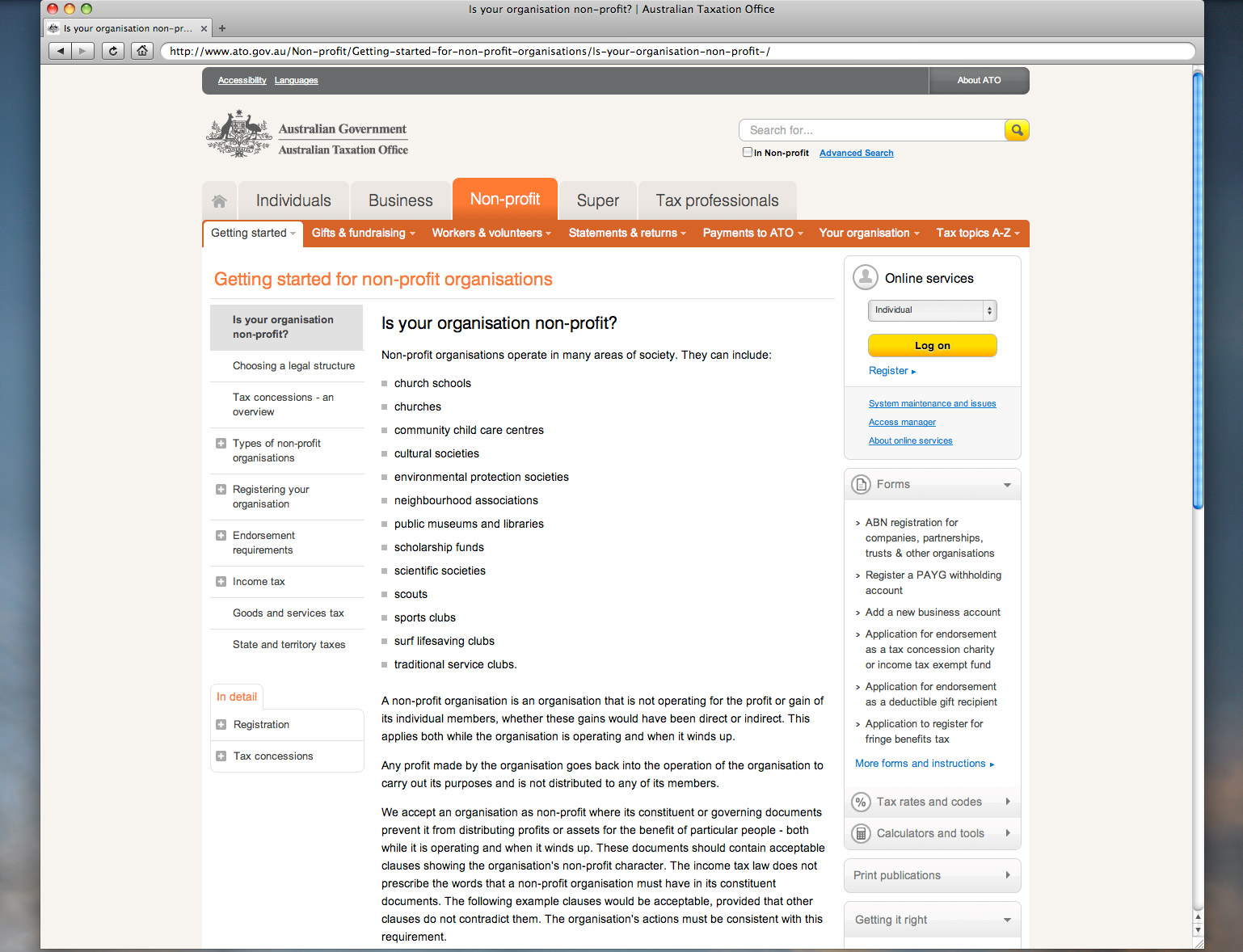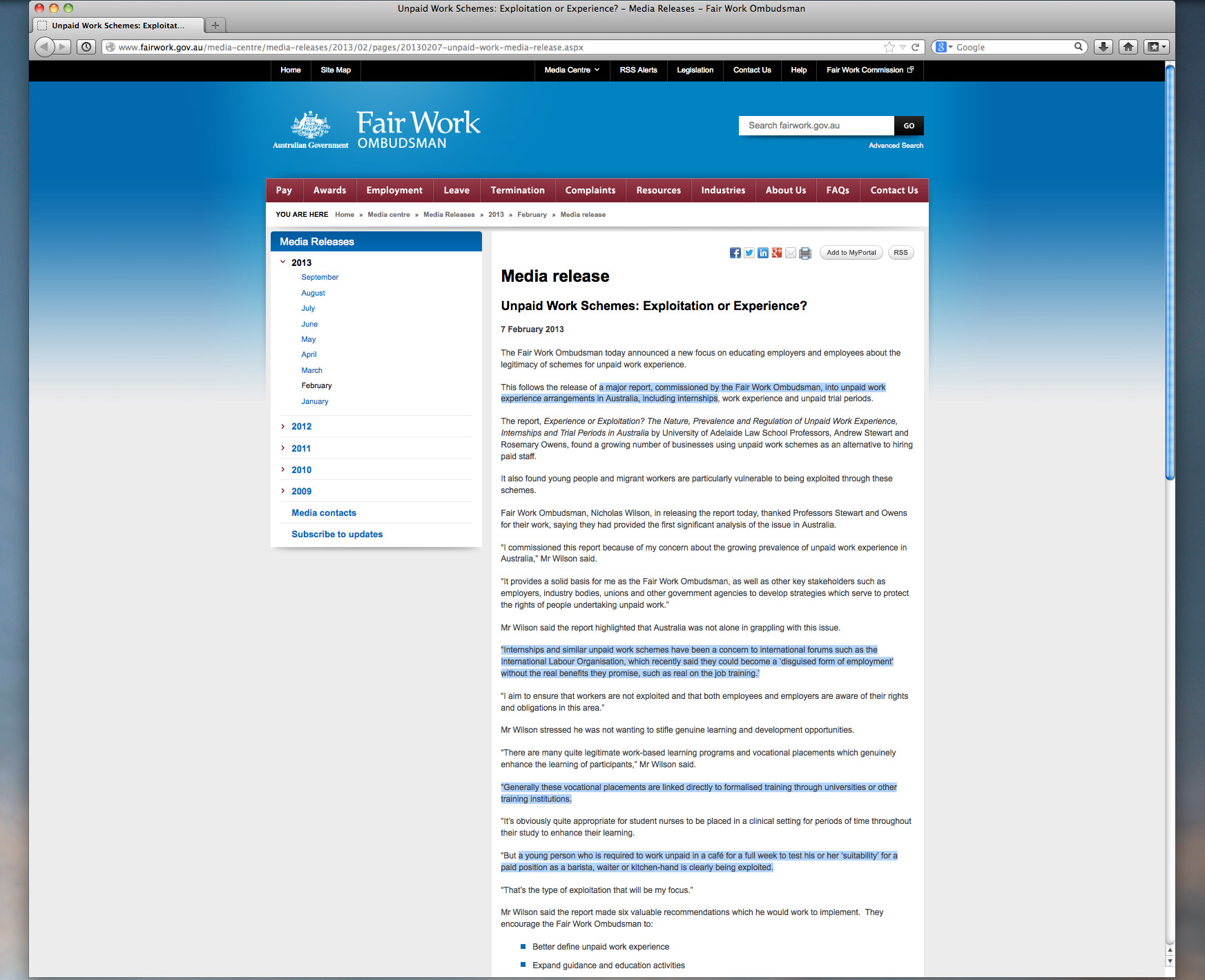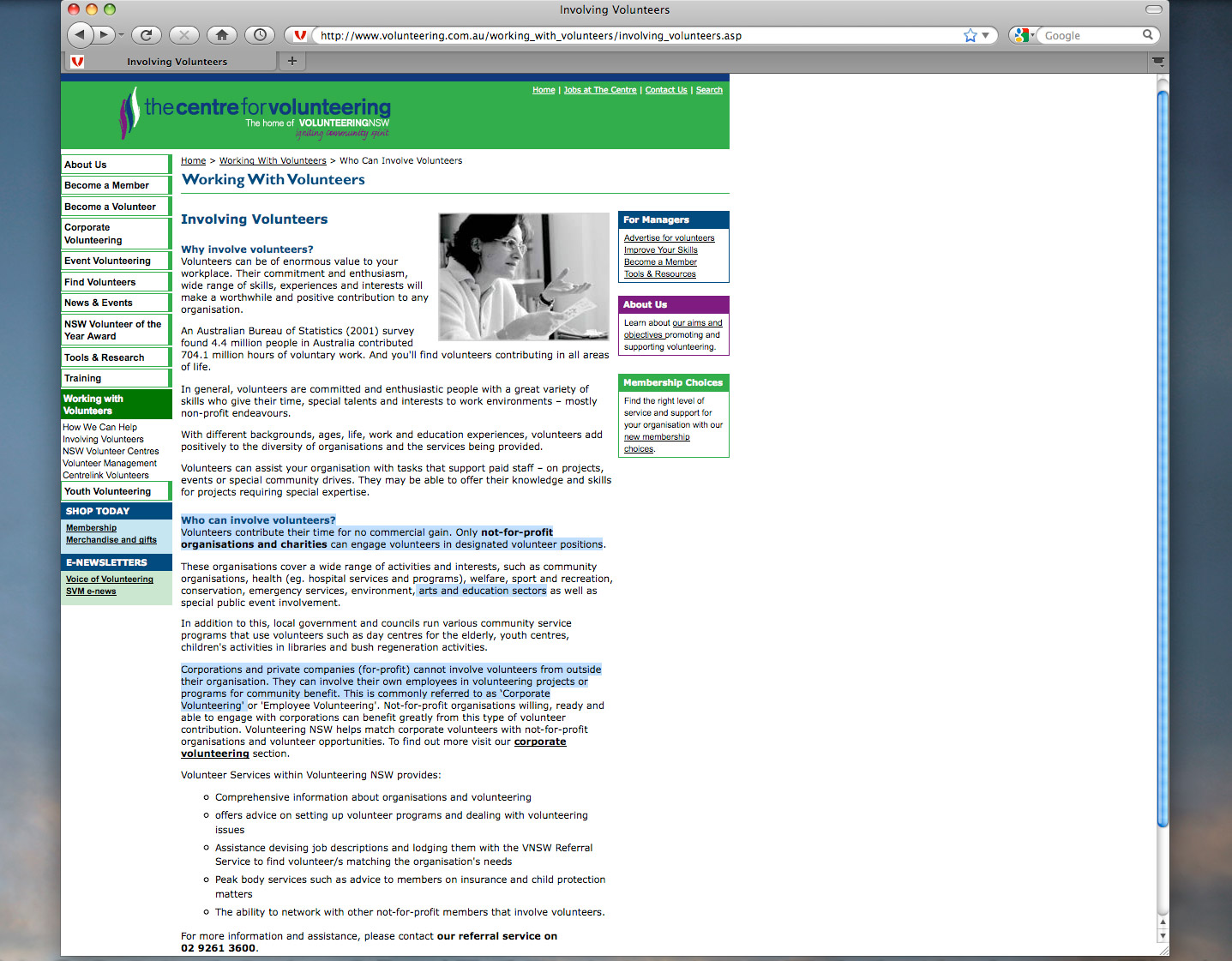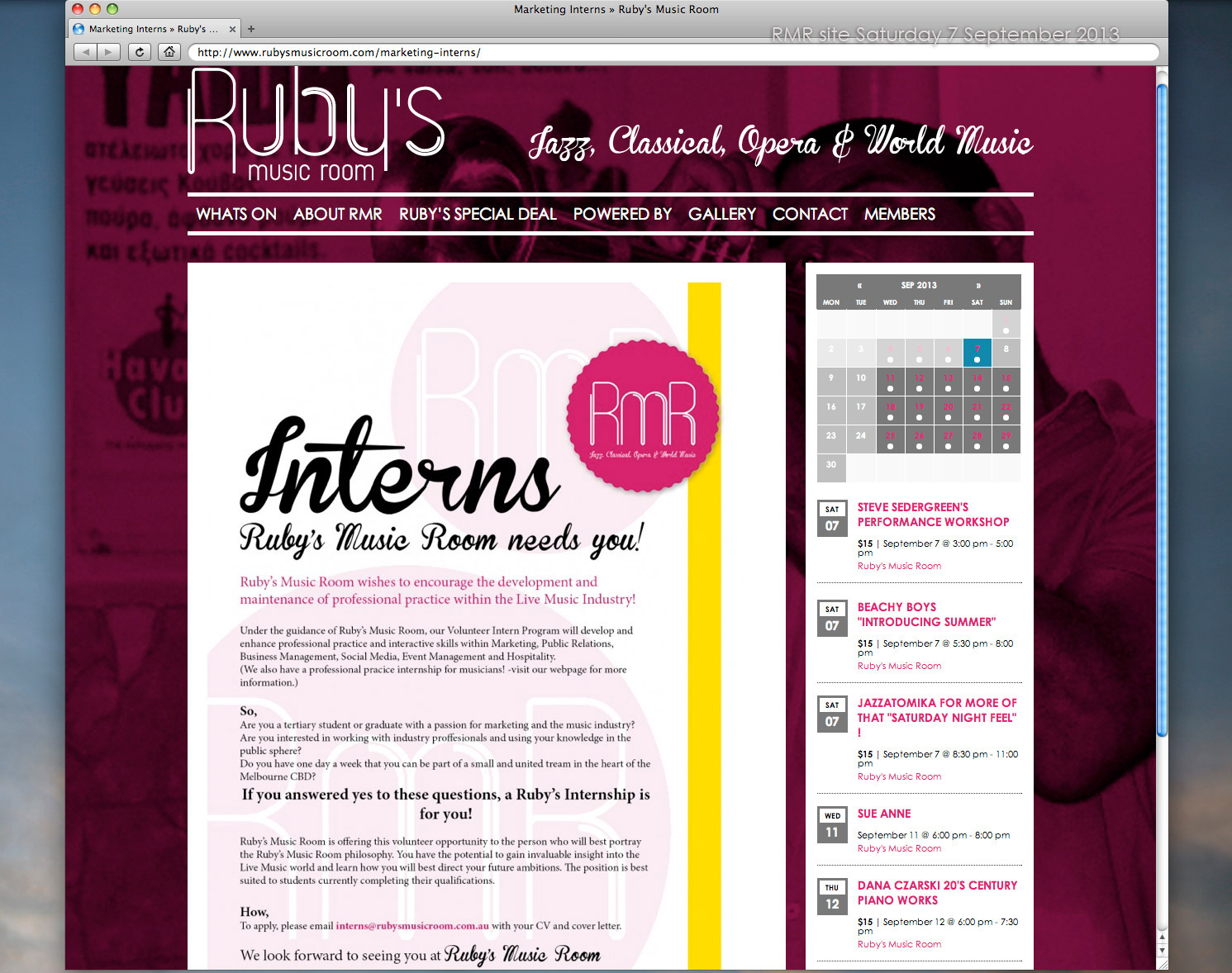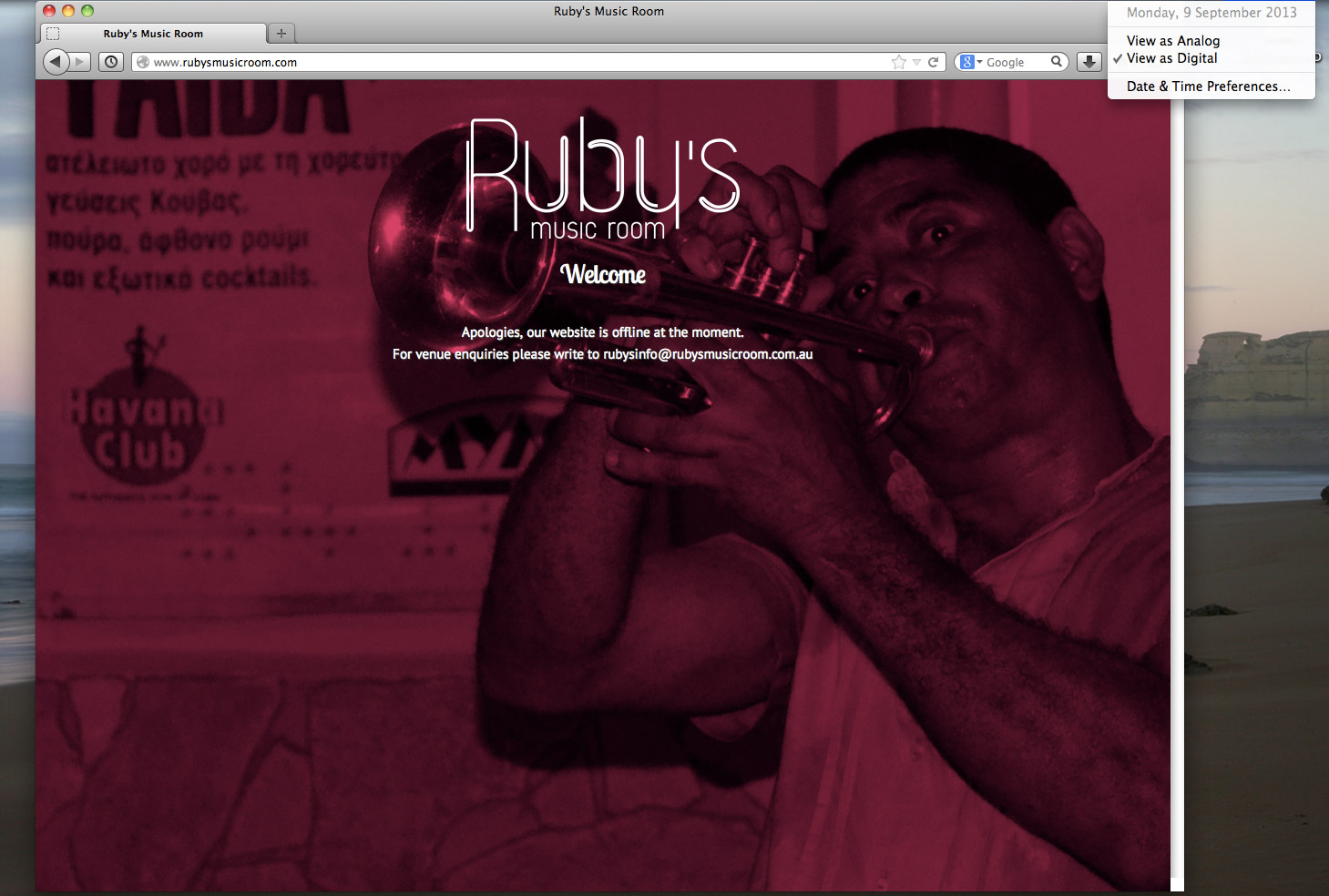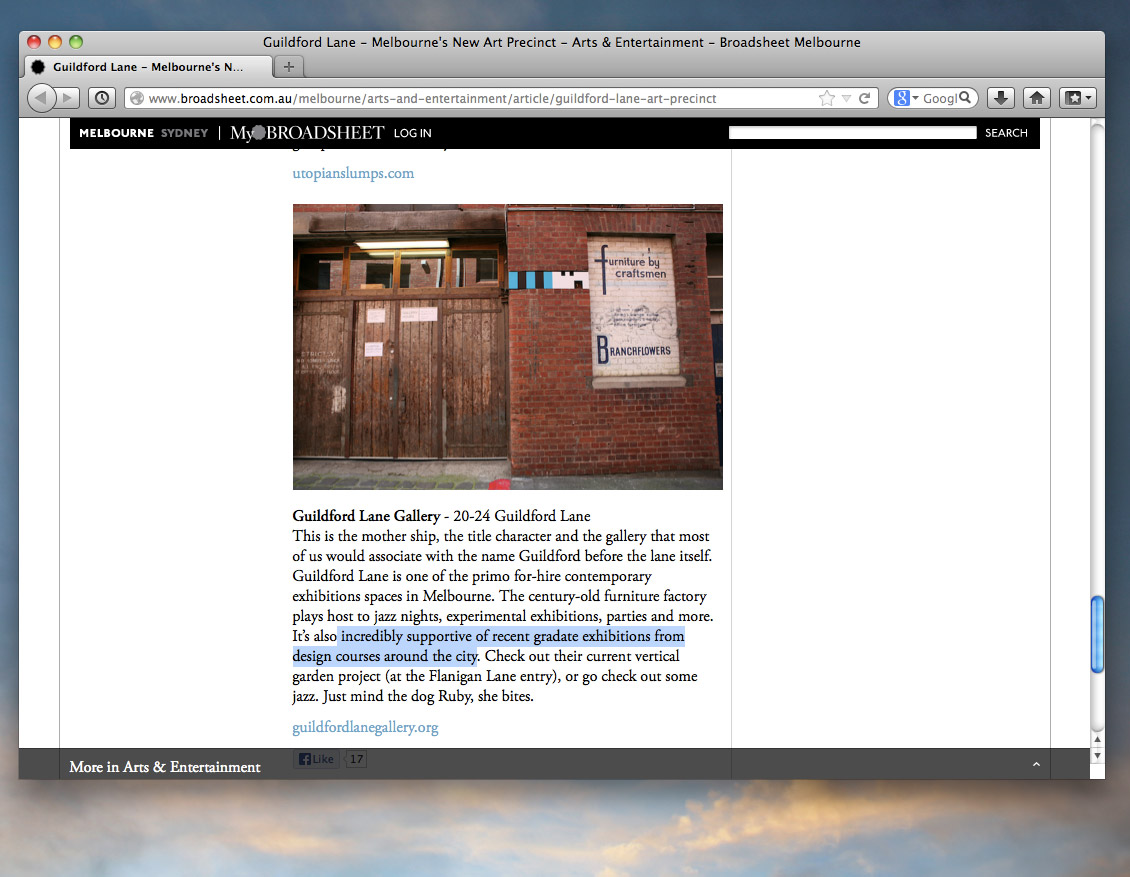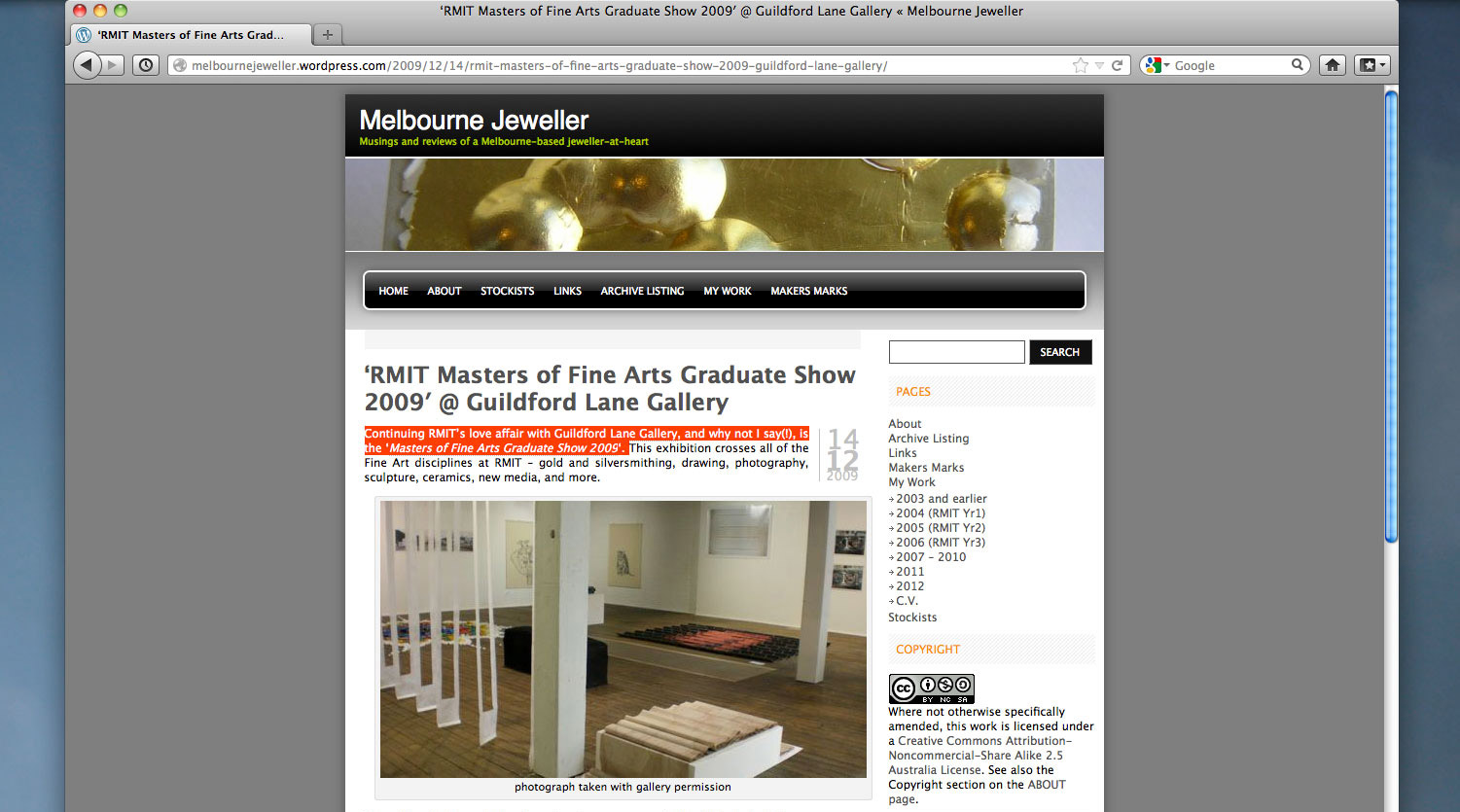Redleg V artists
Robert Raymond Cripps
sues artists for defamation:
Redleg Museum Services (ACN 105 986 829) sues
Demetrios
Vakras (artist)
Lee-Anne Raymond (artist)
Supreme
Court of Victoria
SCI 01484/2011
Cripps' legal team: Tao Jiang and Christopher Dibb
| 1.
Redleg Museum Services now runs RUBY'S MUSIC ROOM ,
Registration number: B2409701A,
ASIC; 2. Cripps' Redleg Museum Services Pty Ltd was the respondent to objections raised in VCAT regarding his Ruby's Music Room; 3."The team behind one of Melbourne’s much loved galleries and performance spaces, Guildford Lane Gallery are very proud to present Ruby’s Music Room." http://rubysmusicroom.tumblr.com Note: Redleg runs Ruby's Music Room, and in the past ran Guildford Lane Gallery. That is a simple fact. But to mention it, and make sure that we are not sued for some reason on grounds we are not aware of and have not anticipated, entails that we have to make "a bigger deal of it" than we otherwise would. It would have been simpler to just mention the fact, but by leaving it at that might be said to have been done by us out of "malice", or that it may have been wrong in fact; hence we need to show where the relationship lies between Redleg and Ruby's Music Room. Indeed, it becomes MANIFESTLY obvious that we could avoid mention of the fact and avoid any legal repercussions; self-censor; which is precisely the the outcome achieved by Australia's 2005 Defamation Act, though the act itself asserts categorically that it is not designed to "unreasonably" impinge on the right to freely impart (and receive) information (though not necessarily expressed by these exact words). |
|
Misleading
and Deceptive conduct
"Evidence"
of his past "sponsorship" of "the arts" even exists
independant of him that lends support to his claim of
"sponsorship". He has "sponsored", in some way at
least, one exhibition and the book that accompanied
that exhibition some time in the 1990s, below: On
his Guildford Lane Gallery page, Cripps proclaimed
that it was his "MISSION" to "develop" and "encourage"
a "dynamic environment for a community that values
interaction" in the "arts", and that he also served to
"educate", below: After
failing with GLG, Cripps opened a new venue, "Ruby's
Music Room", "RMR". Unsurprisingly this tireless
worker for the advancement of high culture is
relentlessly pursuing the same aim that he claims has
characterised him all his life, "His life's passion
lies in music and the arts, and he aims to create an
environment where creative pursuits can develop and
prosper", below: He
even modified his RMR page to share with us that he
has had over 40 years involvement in "the arts", in
his beforementioned "passion", below! Entirely
on his own say-so (Cripps' own marketing) Cripps is
one dedicated man. And,
in opening his new venture in 2013 (I understand that
he opened his doors at this time) he repeats the
claim, "The team behind one of Melbourne’s much loved
galleries and performance spaces, Guildford Lane
Gallery are very proud to present Ruby’s Music Room."
( http://rubysmusicroom.tumblr.com ), below: The
only information Cripps wants known is what he himself
proclaims (his own marketing). And his own marketing
has it that he and his gallery are very much loved.
Based on his own claims, his raison d'être is art and
artists for whom he selflessly exists and that he is
acknowledged and loved for this. Cripps has created
and is marketing a false reputation based solely on
his own claims. How you wish to market yourself is not
your reputation. However, for Cripps it apparently is,
and because his actions during our exhibition at his
GLG are in marked contradiction to his own marketing,
he is suing us for defamation. We have injured his
false and misleading marketing. A
CRIPPS HOW-TO GUIDE And,
not only was the show at GLG of Stelarc's 3rd ear, but
it was also sponsored by Cripps! The
Australia Council sponsored the exhibition by Nina
Sellars that featured her documentary photographs of
Stelarc's surgical procedure. Sellar's own material
stated, "This project has been assisted by the
Australian Government through the Australia council…"
And, alongside the Australia Council logo is Cripps'
own GLG logo which means that Cripps appears as a
sponsor too. It
was not until we were locked into a contract for us to
exhibit at GLG that we realised why his GLG logo was
used: Cripps was not a sponsor of the shows held at
his gallery – the inclusion of his logo was a part of
his contract*. (*The
exhibition involving Nina Sellars and Stelarc was
organised before GLG existed. Nina Sellars and Stelarc
were therefore involved in establishing GLG. This
exhibition to launch GLG was of enormous importance.
It established Cripps' bonafides. As Cripps was to
benefit from the exhibition of Sellars/Stelarc he may
have sponsored the show.)
(the
contract can be found here: http://www.redlegvartists.com/agreement_Raymond%26Vakras.pdf
) Arts
Victoria require all FUNDING RECIPIENTS include their
logo on artists exhibition material to show that the
exhibition is funded. The
inclusion of Cripps' logo, DELIBERATELY CREATED THE
IMPRESSION THAT CRIPPS SPONSORED OR FUNDED THE ART
EXHIBITED!
DECEPTION AND THE ACCC
Cripps
deliberately created a false impression for the
purpose of procuring business. Cripps achieved his
misrepresentation by several means, such as:
deliberately registering his gallery's domain name as
a dot org (despite dot com being available), which
misrepresented his gallery as being a "community"
organisation working for the arts community, when it
was instead a for-profit gallery working for Cripps'
own financial gain; he had volunteers working for him,
which reinforced the impression that the gallery was
an "organisation" because volunteers are an attribute
of a legitimate dot org. Cripps also managed to
procure Stelarc to open his gallery which created an
impression that he was a bonafide "gallerist", when
his only connection to art or art galleries until
August 2008 had been that he owned a trucking service
that transported artworks, and that his brother works
as an "artist/educator" at RMIT. Cripps even used his
knowledge of a surrealist/fantastic art show that had
been organised by Orange Regional Gallery NSW to feign
knowledge of the genre, when in fact his only
knowledge of this show was due to his having been
hired by Orange Regional Gallery to transport it.
Despite this, Cripps remained ignorant of surrealism.
And, due to his ignorance, Cripps claimed that we
misled him with our art.
REGISTRATION
OF GLG: And
after registering his for-profit business with ASIC,
Cripps registered the web domain of this business as
an "ORG" - which is reserved for not-for-profit
organisations in the second week of 2008. The details
of Cripps doing so are available on Whois, below: The
suffix "ORG", to repeat, is reserved for
not-for-profit organisations which Cripps' GLG was
not. Below Melbourne IT define the uses of the "ORG"
suffix: It
is understood internationally that the use of the
suffix "ORG" by any for-profit entity is a misuse of
that suffix and that such use of it is misleading, or
is intended to mislead. A deliberate deception that
results in financial gain is a FRAUD, below: It
is not as if "guildfordlanegallery.com" was
unavailable - it continued to be available until it
was registered in 2010. This was a deliberate and
calculated decision. VOLUNTEERS Cripps
called for volunteers on Facebook, below. Cripps'
gallery boasted of its "incredible team of
volunteers", who provide the kind of support normally
absent to artists who exhibit their works in galleries
that exhibit art for the purpose of selling it, below. Not-for-profit
organisations such as the ACCA who exhibit the works
of artists such as Peter Cripps, Robert Cripps'
brother, legitimately call for volunteers, below. Volunteering
is described by Volunteering Australia as an activity
for not-for-profit organisations, below: And
from Volunteering Victoria, "Volunteering
doesn't mean working for free in a private business
or company – in many circumstances that can be
illegal.", below. A
search on Google for "volunteer work at gallery"
brings up only educational, federal, state and local
government organisations. There are no for-profit
organisations such as Cripps' GLG: WHAT
IS A VOLUNTEER?
The
government website providing advice for the
not-for-profit sector define volunteers as being
specific only to the not-for-profit sector.
Volunteering is not for private companies like Cripps'
GLG, below: The
Australian Taxation Office, ATO, defines what kind of
not-for-profit organisations qualify for volunteers. A
for-profit gallery such as Cripps' GLG does not
qualify as it does not fit any of the definitions.
Cripps' GLG was not a school, or a church, or a
"cultural society", or a "public museum", etc., below: FAIRWORK
Australia has recently released a report on the abuse
by the for-profit sector of the concept of
volunteering. Cripps' "volunteers" by law should have
been paid-for employees,
below: And,
the recent Fair Work Ombudsman characterises
for-profit companies' use of volunteers and
"internships" as "exploitation",
below: CRIPPS' USE OF VOLUNTEERS WAS UNLAWFUL
For
an artist, volunteers indicated that the gallery or
institution in question fulfilled some sort of genuine
requirement that allowed the gallery in question to
legitimately call for volunteers. This turned out to
be a misrepresentation. It was a deception. The
deception worked for the purposes Cripps intended
which was to procure artists by making inducements
based on his having volunteers to fulfill what he
promised. Below,
Cripps pulled his site that called for volunteers and
interns on either 8/9/2013, or 9/9/2013. In
order to mislead us Cripps had to undertake several
measures. Each on its own might appear
inconsequential. However, this was an elaborately
constructed and deliberate deception. And, after
misleading us into signing an agreement with him
Cripps then used a number of strategies that are also
unlawful in the CCA 2010 (formerly the TPA 1974). His
conduct was unconscionable (he was a bully) and he
demanded we fulfill obligations that were not in the
contract or he would not fulfill what he had agreed
to. And on our making this known, he is suing us to
keep it from becoming known and make a profit for his
having acted this way. And
the large number of exhibitions held at GLG that were
tied to RMIT, helped cement the false representation
of Cripps supporting up-and-coming artists, and that
he had some official connection to an institution like
RMIT, below. Cripps successfully manufactured a carefully designed and executed deception based upon deceptive marketing which was not based on Cripps' actual actions or reputation. He is suing us to prevent it being known that his reputation is different than what he is marketing. Author: Demetrios Vakras 17 September 2013 (edited
21/9/2013 to add GLG times as advertised on NAVA ) We
are petitioning the Australian government to amend the
Defamation Act of 2005 to make Australian law
consistent with its international obligations. |
